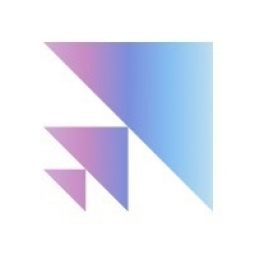Technology Category
- Analytics & Modeling - Real Time Analytics
- Platform as a Service (PaaS) - Application Development Platforms
Applicable Industries
- Cement
- E-Commerce
Applicable Functions
- Procurement
Use Cases
- Fraud Detection
- Real-Time Location System (RTLS)
Services
- System Integration
About The Customer
OpenSea is the world's first and largest marketplace for non-fungible tokens (NFTs). The platform allows customers to browse, buy, sell, and mint NFTs across seven different blockchains. OpenSea is on a mission to build an open digital economy, helping the world’s creators, collectors, and collaborators own and shape their relationships directly. The company is a leader in the Web3 ecosystem and is committed to ensuring trust and safety for its users, especially those new to the world of NFTs.
The Challenge
OpenSea, the world's leading marketplace for non-fungible tokens (NFTs), was facing a significant challenge in detecting and mitigating copymints and fraud. Copymints are duplicates or imitations of popular NFTs, which can deceive users, especially those new to the world of NFTs. Trust and safety are crucial for welcoming new people into the Web3 ecosystem, and OpenSea was looking for a vendor to help advance their detection and removal capabilities. The team had already used rule-based systems to capture forms of deception, but it was a challenge to achieve the desired speed, recall, and precision needed to effectively address fraud in the marketplace.
The Solution
OpenSea partnered with Scale to implement an industry-leading solution that could identify and handle a dynamic set of deceptive NFTs. Scale Content Understanding provided data enhancement for better platform experiences by enriching, analyzing, and categorizing content. It proved robust in testing against OpenSea’s high data volume of up to 50 million items a week. Scale offered a fast turnaround models-as-a-service solution to categorize and determine whether a given NFT is a close match of another one. The solution included real-time detection through API-based solutions and full catalog scans to remove historical scams. Scale trained custom deep learning image models to represent NFTs as embeddings in a manifold, allowing similar items to be nearby and significantly different items to have a further distance from one another. This setup facilitated real-time querying and retrieval through k-Nearest Neighbors algorithms.
Operational Impact
Quantitative Benefit

Case Study missing?
Start adding your own!
Register with your work email and create a new case study profile for your business.
Related Case Studies.

Case Study
System 800xA at Indian Cement Plants
Chettinad Cement recognized that further efficiencies could be achieved in its cement manufacturing process. It looked to investing in comprehensive operational and control technologies to manage and derive productivity and energy efficiency gains from the assets on Line 2, their second plant in India.

Case Study
Digital Transformation of Atlanta Grout & Tile: An IoT Case Study
Atlanta Grout & Tile, a Tile, Stone & Grout restoration company based in Woodstock, Georgia, was facing challenges with its traditional business model. Despite steady growth over the years, the company was falling behind the web revolution and missing out on the opportunity to tap into a new consumer base. They were using independent software from different vendors for each of their department information and workforce management. This resulted in a lot of manual work on excel and the need to export/import data between different systems. This not only increased overhead costs but also slowed down their response to clients. The company also had to prepare numerous reports manually and lacked access to customer trends for effective business decision-making.

Case Study
IFFCO Boosts IT Performance and Innovates Agriculture with Oracle Cloud
Indian Farmers Fertiliser Cooperative Ltd. (IFFCO), the world’s largest manufacturer and marketer of fertilizers in the cooperative sector, was facing several challenges in its quest to innovate and improve the livelihood of farmers in India. The organization had recently launched a new product, nano urea, which brought new demands to IFFCO’s cloud computing needs. The organization needed a reliable cloud vendor to support the processes of 6–7 new manufacturing plants during the upcoming year, enhancing its production capability 300–350 million bottles of nano urea to meet increasing demand. IFFCO’s cloud adoption was driven by a need to innovate. The organization wanted capabilities for a dynamic business that can adapt to the changing needs of the market while growing fast. However, it was inhibited by rigid on-premises data center deployments and the overhead of maintaining legacy systems. IFFCO wanted to apply the elasticity and availability of cloud for improving overall performance of applications at lowest possible operational overhead. Lastly, IFFCO needed to provide the benefits of its technology to all its stakeholders, including employees, members, transporters, and farmers, some of whom have limited literacy. To accommodate all stakeholders, IFFCO wanted to add a voice interface to its applications.

Case Study
Revolutionizing Construction Equipment Rental: A Case Study on ProsRent and ENO8
ProsRent, a startup that won the 'Best Financial Opportunity' and 'Best Pitch' at CodeLaunch 2016, aimed to revolutionize the way construction professionals source and rent heavy equipment. In the construction industry, project managers and contractors typically rent heavy equipment from supply companies. However, predicting inventory can be challenging, and finding the required equipment at the right time and place can be a hassle. If the preferred vendor doesn't have the required equipment, it results in wasted time and money in searching for it, often leading to higher costs due to non-preferred rates and increased delivery costs if the vendor is located far from the job site. Suppliers, on the other hand, desired access to a wider base of trusted renters that they didn't have to vet themselves and wanted to offer dynamic rental pricing based on demand and availability in their market. ProsRent's challenge was to produce a minimum viable product that was fast and first to market but also strong enough to engender loyalty and repeat business from the target market.

Case Study
AI-based Automation for Commercial Office HVAC: A Verdigris Case Study
Modern buildings are required to run longer hours, support a variety of end uses, and contribute to higher levels of economic productivity, leaving a thin margin for error. However, even the most advanced building and environmental control systems have failed to adequately support facilities and operations management. Buildings are often inefficient and the people using them are underserved. To meet occupant comfort and maintain cost and energy efficiency, a dynamic, AI-assisted approach is needed.








